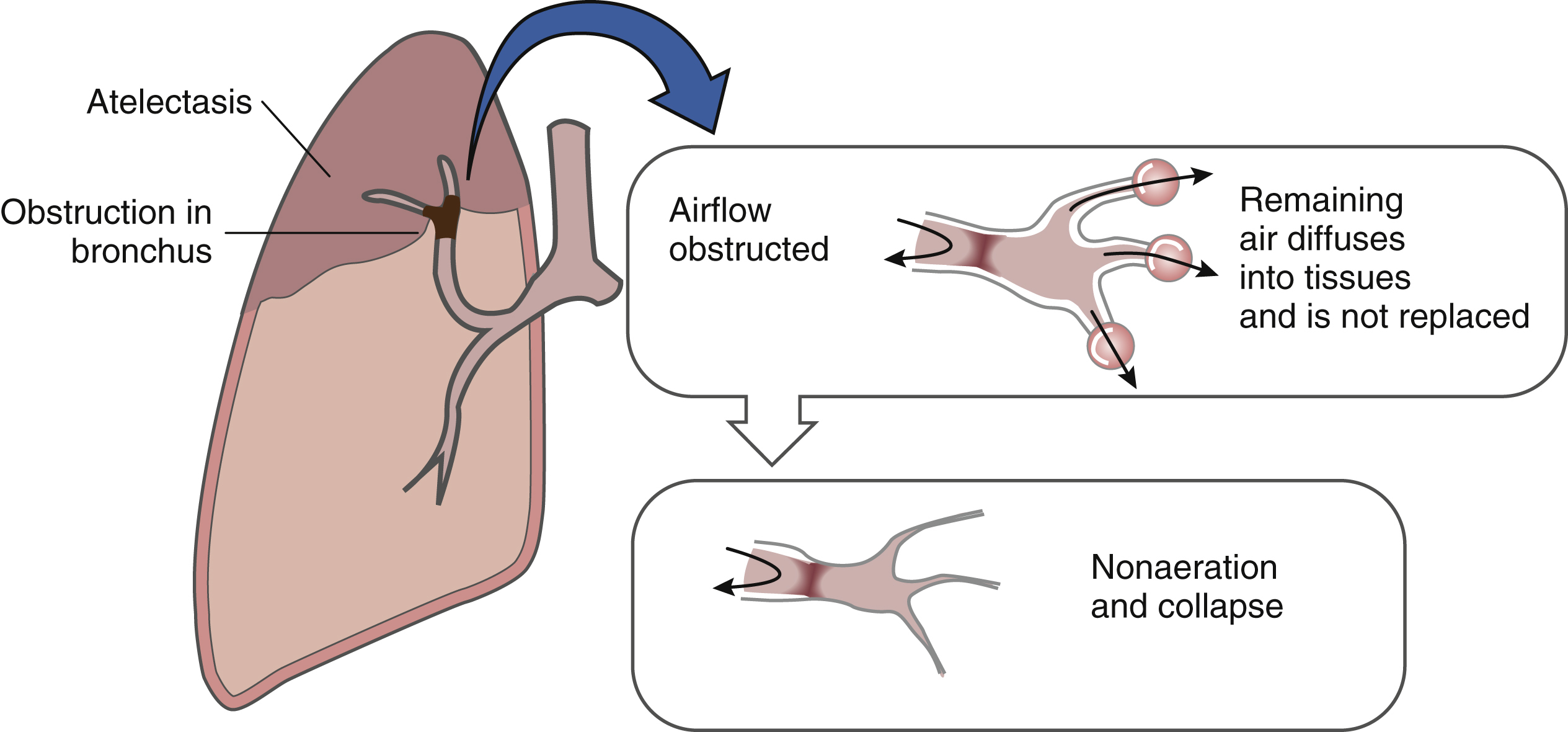atelectasis /at′ilek″təsis/ [Gk, ateles, incomplete, ektasis, expansion] , an abnormal condition characterized by the collapse of alveoli, preventing the respiratory exchange of carbon dioxide and oxygen in a part of the lungs. Symptoms may include diminished breath sounds or aspiratory crackles, a mediastinal shift toward the side of the collapse, fever, and increasing dyspnea. As the remaining portions of the lungs eventually hyperinflate, oxygen saturation of the blood is often nearly normal. The condition may be caused by obstruction of the major airways and bronchioles, by compression of the lung as a result of fluid or air in the pleural space, or by pressure from a tumor outside the lung. Loss of functional lung tissue may secondarily cause increased heart rate, blood pressure, and respiratory rate. Secretions retained in the collapsed alveoli are rich in nutrients for bacterial growth, a condition often leading to stasis pneumonia in critically ill patients. See also postoperative atelectasis, primary atelectasis.

